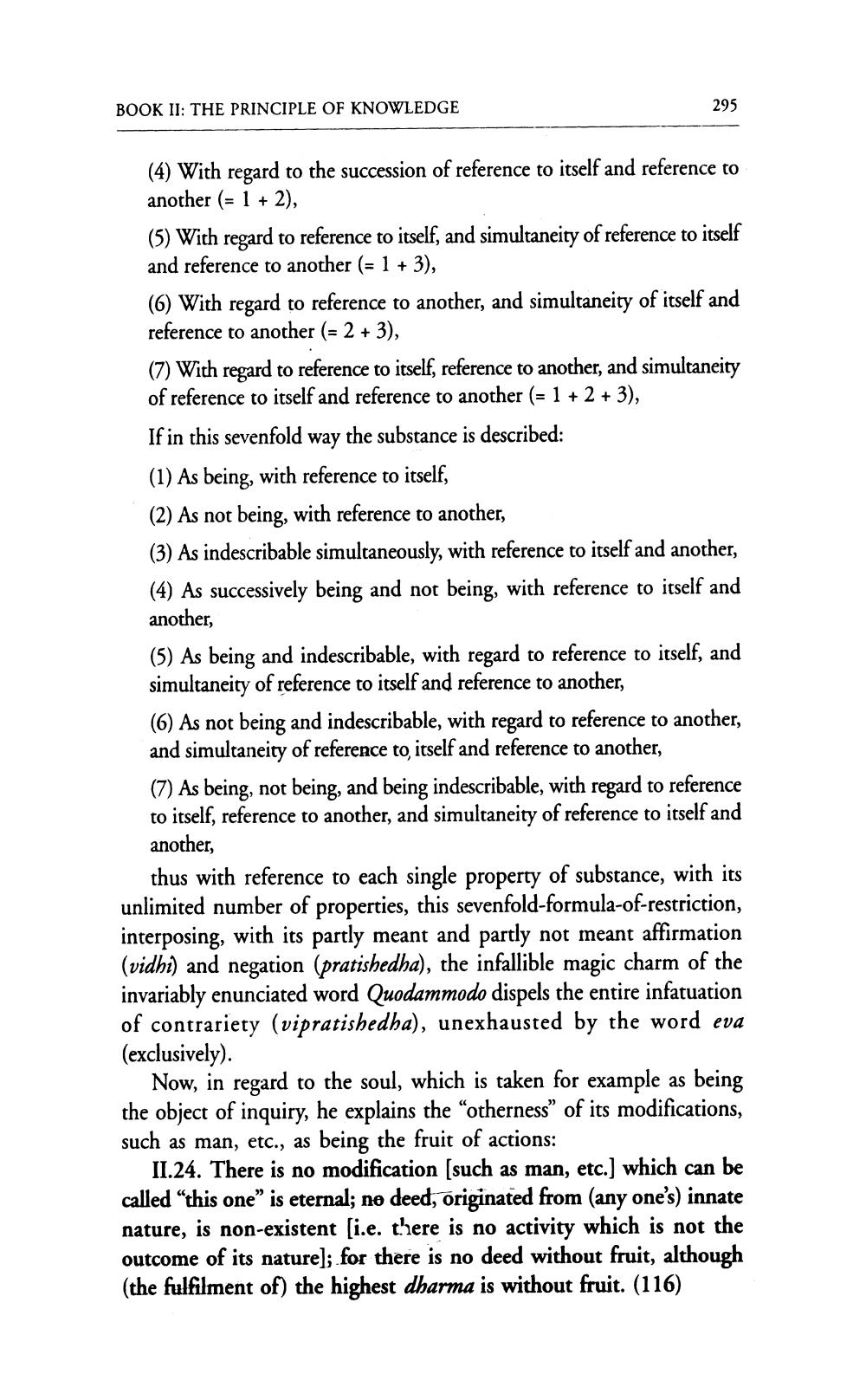________________
BOOK II: THE PRINCIPLE OF KNOWLEDGE
295
(4) With regard to the succession of reference to itself and reference to another (= 1 + 2), (5) With regard to reference to itself, and simultaneity of reference to itself and reference to another (= 1 + 3), (6) With regard to reference to another, and simultaneity of itself and reference to another (= 2 + 3), (7) With regard to reference to itself, reference to another, and simultaneity of reference to itself and reference to another (= 1 + 2 + 3), If in this sevenfold way the substance is described: (1) As being, with reference to itself, (2) As not being, with reference to another, (3) As indescribable simultaneously, with reference to itself and another, (4) As successively being and not being, with reference to itself and another, (5) As being and indescribable, with regard to reference to itself, and simultaneity of reference to itself and reference to another, (6) As not being and indescribable, with regard to reference to another, and simultaneity of reference to itself and reference to another, (7) As being, not being, and being indescribable, with regard to reference to itself, reference to another, and simultaneity of reference to itself and another,
thus with reference to each single property of substance, with its unlimited number of properties, this sevenfold-formula-of-restriction, interposing, with its partly meant and partly not meant affirmation (vidhi) and negation (pratishedha), the infallible magic charm of the invariably enunciated word Quodammodo dispels the entire infatuation of contrariety (vipratishedha), unexhausted by the word eva (exclusively).
Now, in regard to the soul, which is taken for example as being the object of inquiry, he explains the “otherness” of its modifications, such as man, etc., as being the fruit of actions:
II.24. There is no modification (such as man, etc.) which can be called "this one” is eternal; no deed, originated from (any one's) innate nature, is non-existent [i.e. there is no activity which is not the outcome of its nature]; for there is no deed without fruit, although (the fulfilment of) the highest dharma is without fruit. (116)




